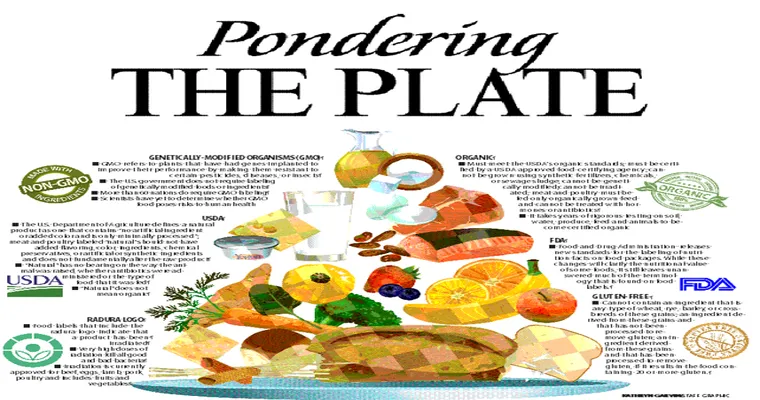Reflecting on whether you "ate a balanced diet" growing up can reveal much about your current eating habits and health. As we age, our nutritional needs often change, prompting many to assess and modify their diets. Questions about whether "organic" foods are superior to conventional options, and the implications of consuming "GMO" and "processed foods", are becoming increasingly relevant in today’s health-conscious society. In this article, we will explore these topics and how they can impact your overall well-being.
The Importance of a Balanced Diet
A "balanced diet" typically includes a mix of carbohydrates, proteins, fats, vitamins, and minerals. Growing up, many individuals may not have had the luxury of understanding the importance of nutrition, leading to varied dietary habits. Some may have eaten well, while others may have relied heavily on convenience foods. As a child, if your meals were largely composed of fruits, vegetables, whole grains, and lean proteins, you likely set a strong foundation for your health. Conversely, a diet high in sugars, unhealthy fats, and processed foods could have long-term effects on your health.
Altering Your Diet with Age
As we progress through different life stages, our bodies require different types of nutrients. People often change their diets due to numerous factors, including health concerns, lifestyle changes, or even ethical considerations. For instance, individuals may choose to reduce their intake of "processed foods" or increase their consumption of "organic" options as they become more aware of how these items affect their health. Assessing your dietary choices can lead to improved energy levels, weight management, and overall health.
The Organic vs. Conventional Debate
The question of whether "organic" foods are better than their conventional counterparts is a hot topic among health enthusiasts. Organic foods are grown without synthetic fertilizers, pesticides, or genetically modified organisms (GMOs). Proponents argue that organic farming practices are better for the environment and result in healthier food options. However, critics often point out that organic foods can be significantly more expensive and may not always be readily available.
When considering whether to include organic options in your diet, it's essential to weigh the benefits against your budget and accessibility. Purchasing organic produce can be a great way to minimize your exposure to chemicals, but it’s also crucial to focus on consuming a wide variety of fruits and vegetables, regardless of their farming methods.
Understanding GMOs and Processed Foods
"GMO" foods have been modified to enhance certain traits, such as resistance to pests or improved shelf life. While the scientific consensus indicates that GMOs are generally safe for consumption, concerns persist regarding their long-term health effects and environmental impact.
On the other hand, "processed foods" often contain additives, preservatives, and high levels of sugar or salt, which can contribute to health issues if consumed in excess. Reducing processed foods in your diet can lead to better health outcomes, encouraging you to opt for fresh, whole ingredients whenever possible.
Conclusion
In conclusion, reflecting on whether you "ate a balanced diet" growing up can help you understand your current nutritional choices. As you age, it’s crucial to adapt your diet to meet your changing health needs. Exploring the benefits of "organic" versus conventional foods, along with the implications of consuming "GMO" and "processed foods", can empower you to make informed dietary decisions. Ultimately, focusing on a balanced and varied diet will support your health and well-being as you navigate through life’s stages.





